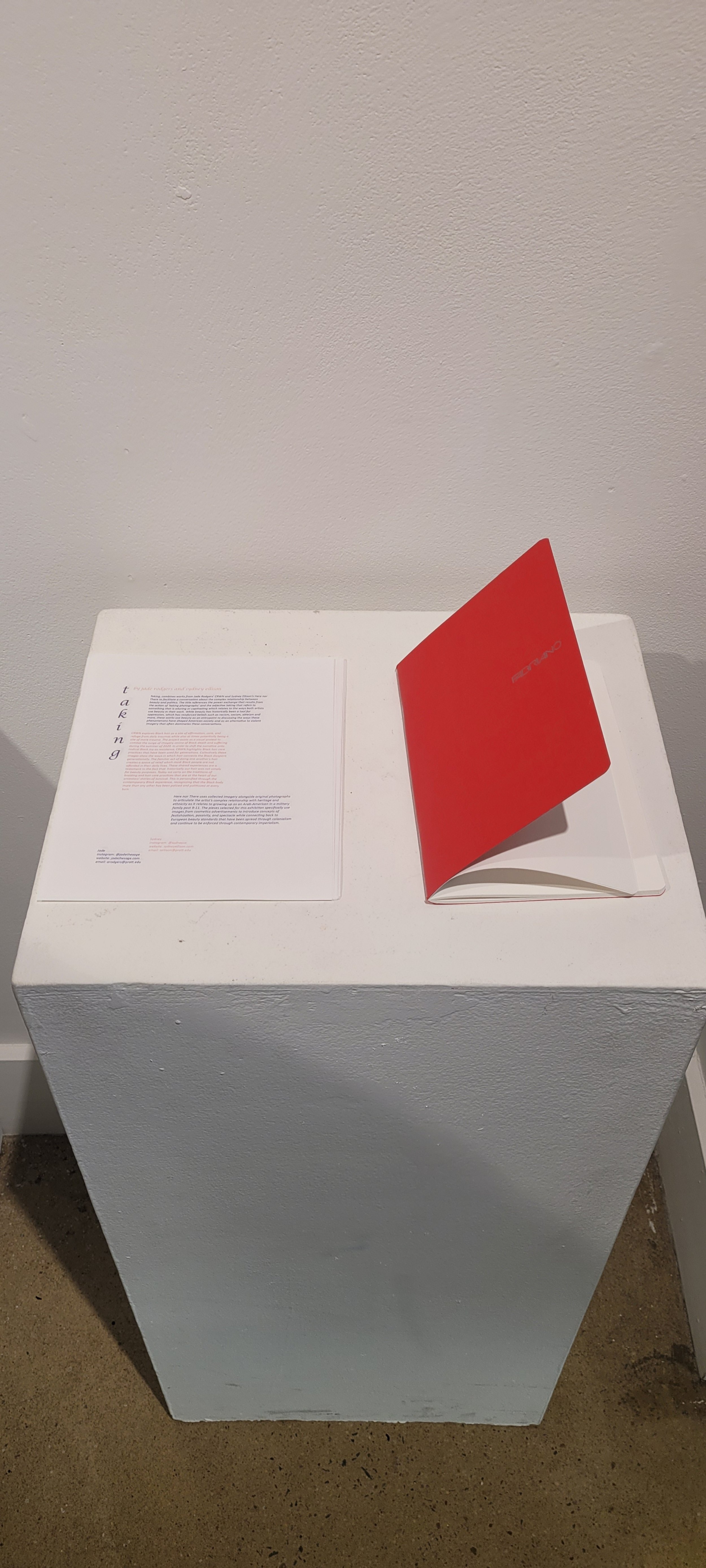Hairitage
Curated by Favour Ritaro - Apexart
On view: November 18th - December 18th, 2023
Location: DeKalb Gallery, Pratt Institute DeKalb Hall, 331 Dekalb Ave, Brooklyn, NY 11205
Featuring work by: Adebunmi Gbadebo - David Orrell - Jade Rodgers - DeJeonge Reese
Hairitage is a group exhibition exploring the role of Black hair in Black and African American identity and examines historical racial discrimination and contemporary significance of Black hair in the United States. Through thematic exploration of identity, memory, community, racism, and resistance, the presented works offer a nuanced examination of the politics of Black hair and how deep rooted systems of oppression have shaped the prejudicial treatment of Black people from the slavery era to present-day America. Adebunmi Gbadebo uses Black hair collected from people from the African Diaspora to investigate the complexities between land and memory in the American South. David Orrell’s Taji series started as an exploration of his own identity and further developed into an inquiry of the role of Black hair in identity formation. While he was inspired by J.D. Okhai Ojeikere and his photographic exploration of unique hairstyles found throughout Africa, David’s inquiry led to uncovering current systematic racism against Black people. Jade Rodgers highlights Black hair care practices that have been used for generations. Rogers pushes for a reclamation of power and self-worth, and against subjugation of the Black body. Dejeonge’s Hair Quilt is inspired by the history of quilts in African American culture and is a beautiful and powerful tribute to the ways in which they have used their hair and other cultural traditions to resist oppression and find freedom. By highlighting the collective personal experiences of Black and African American artists and students at Pratt Institute in New York, Hairitage presents a common ground for addressing entangled histories. It celebrates ways people have reclaimed their hair as a symbol of pride and empowerment. Hairitage is an apexart NYC Open Call Exhibition. For more information on the exhibition and related events, email visit apexart.org/ritaro2.php or email ash.hagerstrand@apexart.org.
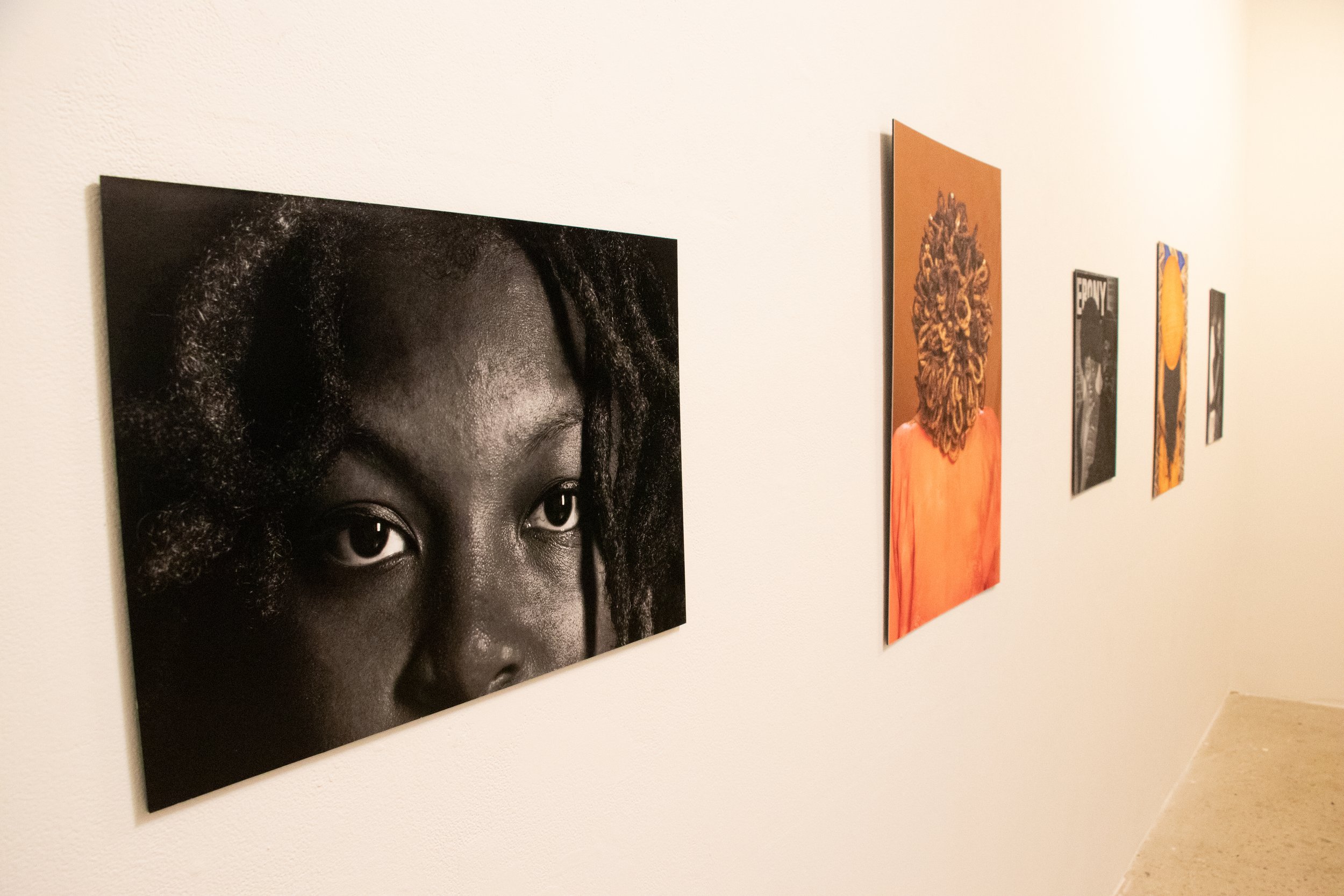
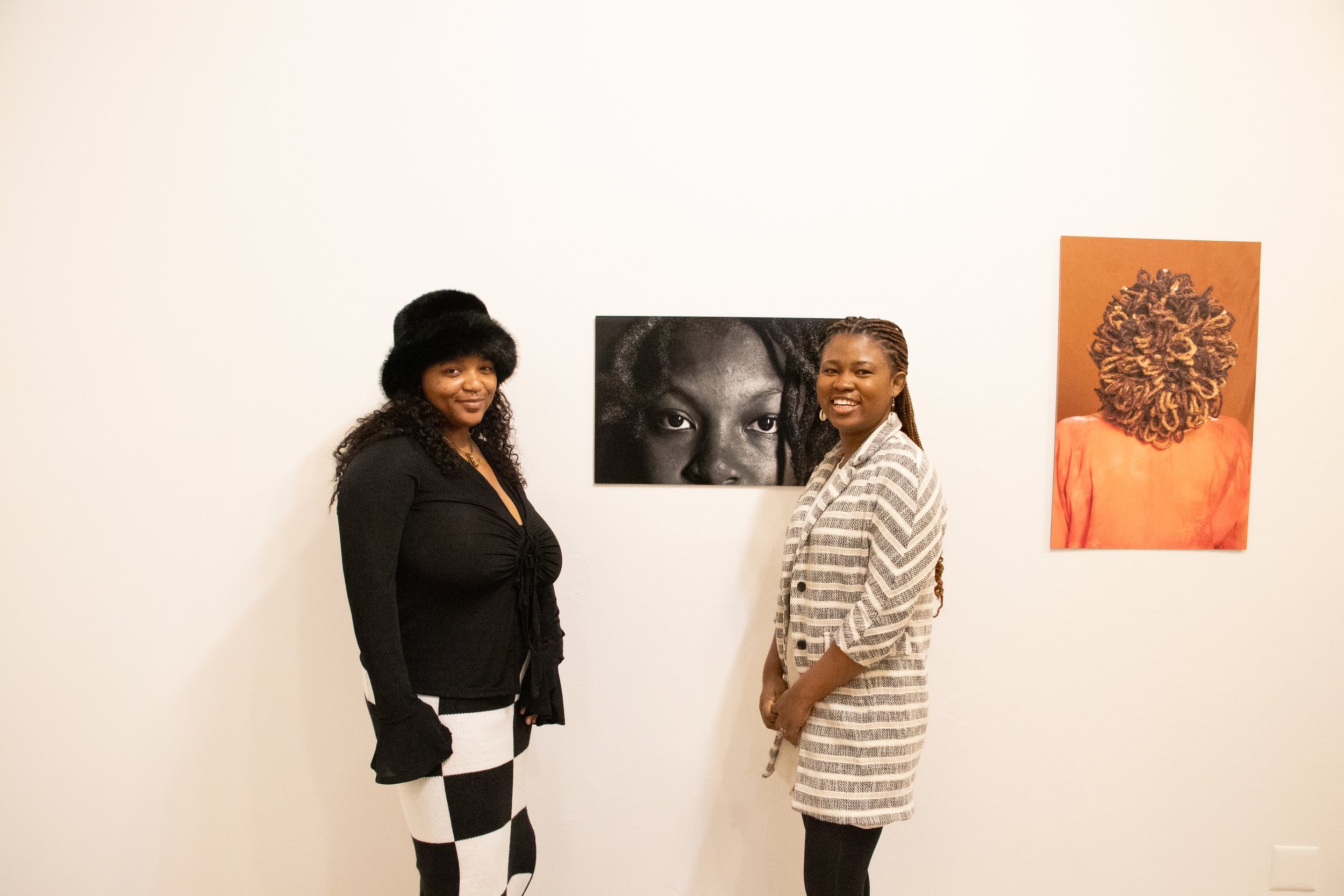

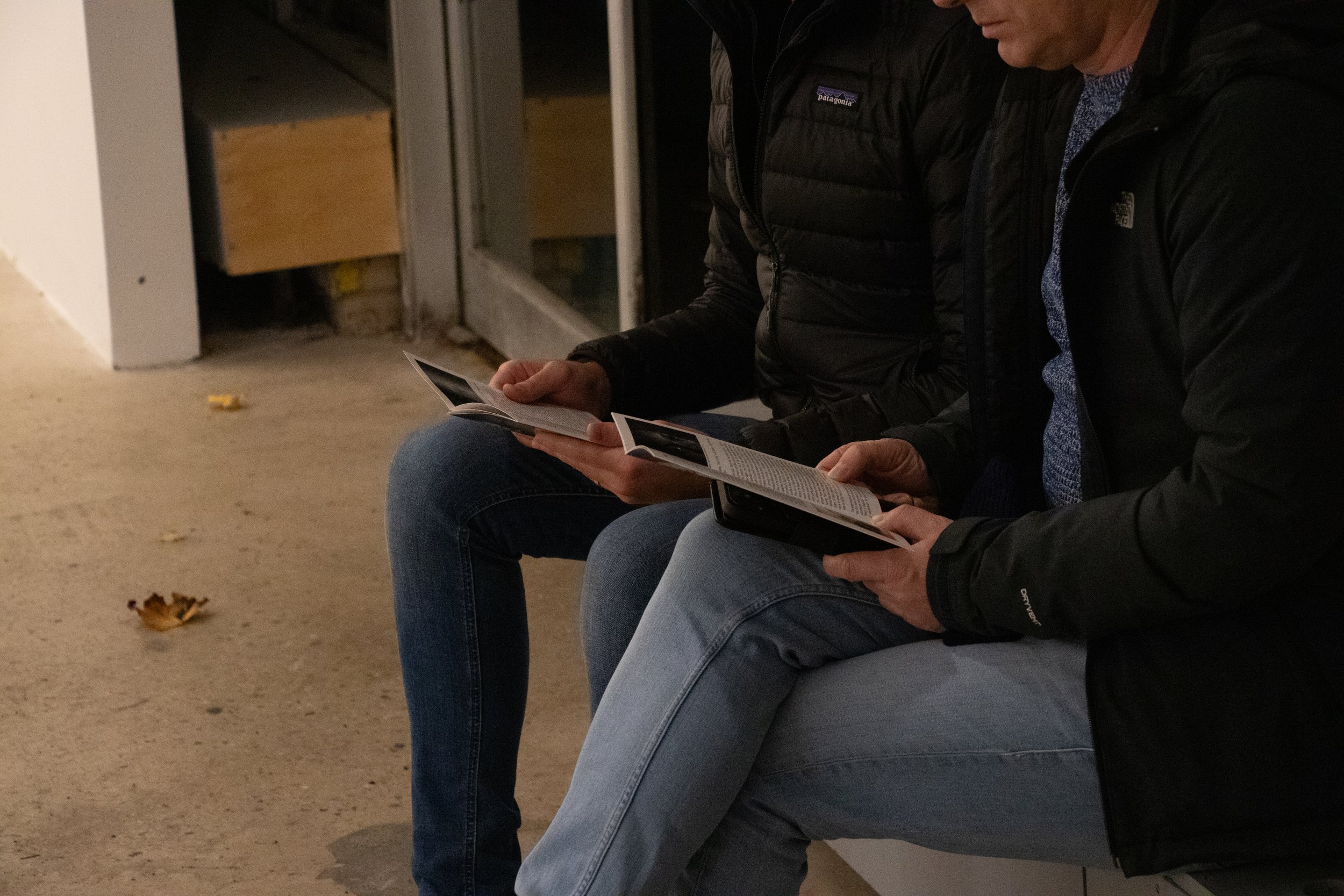
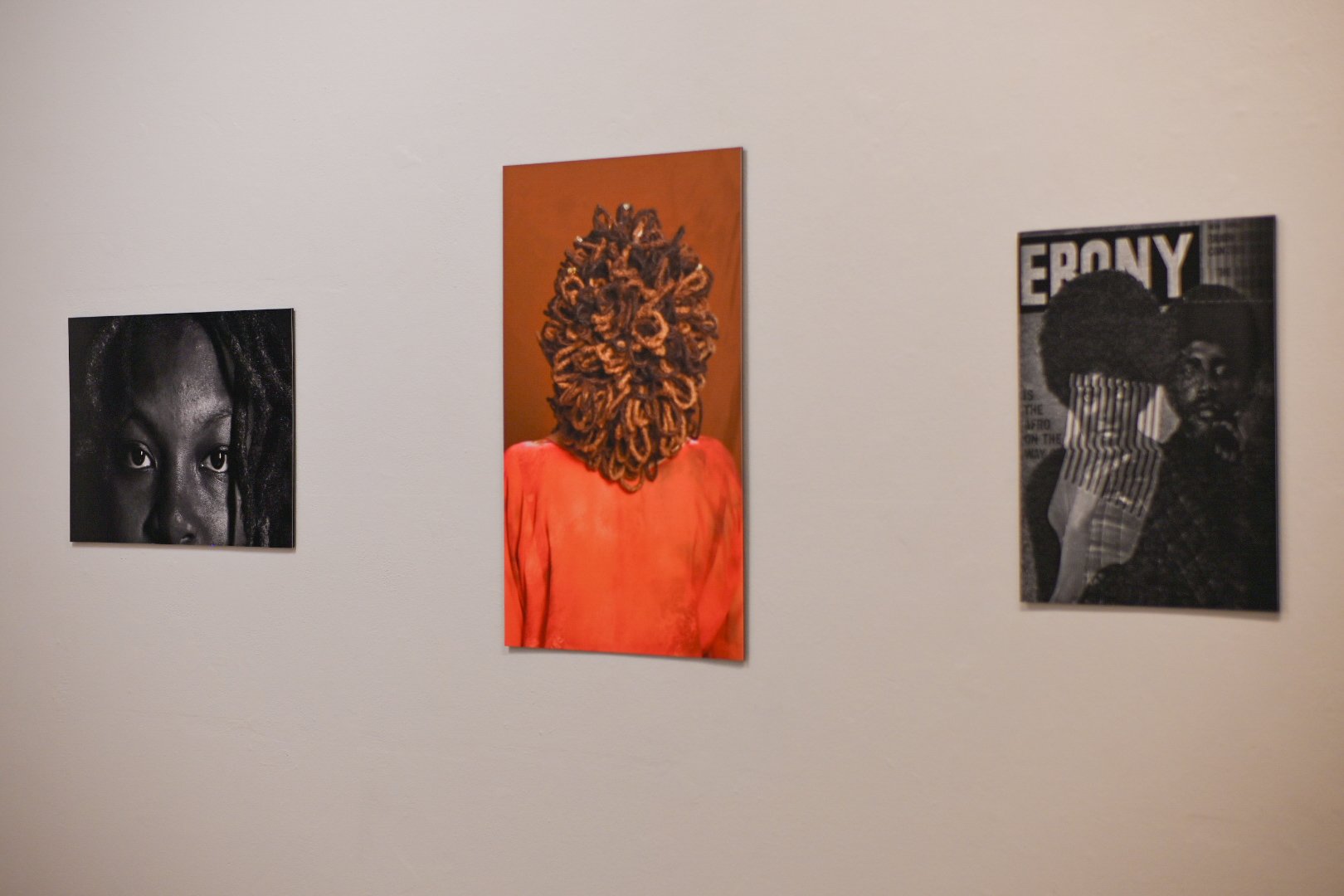
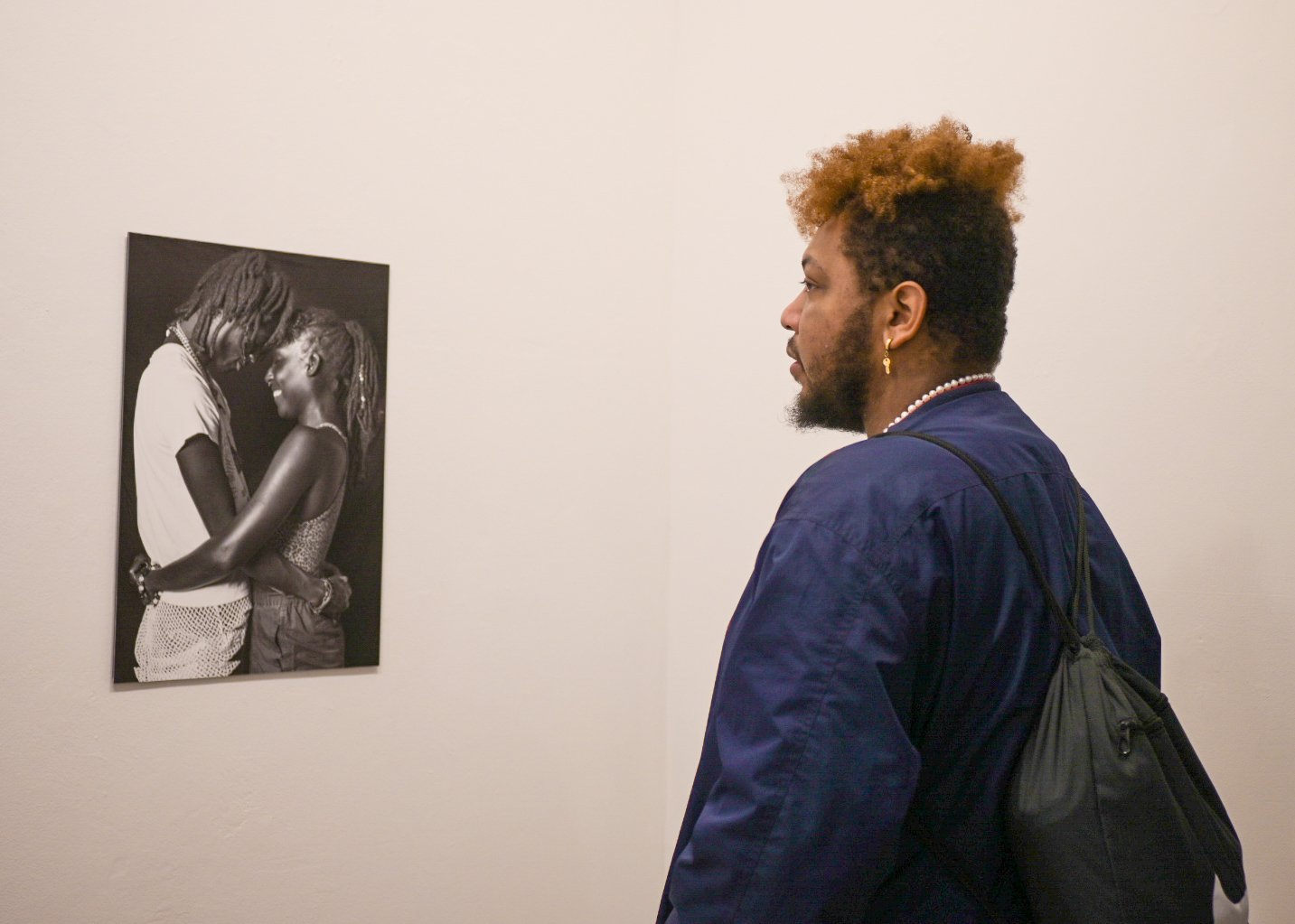
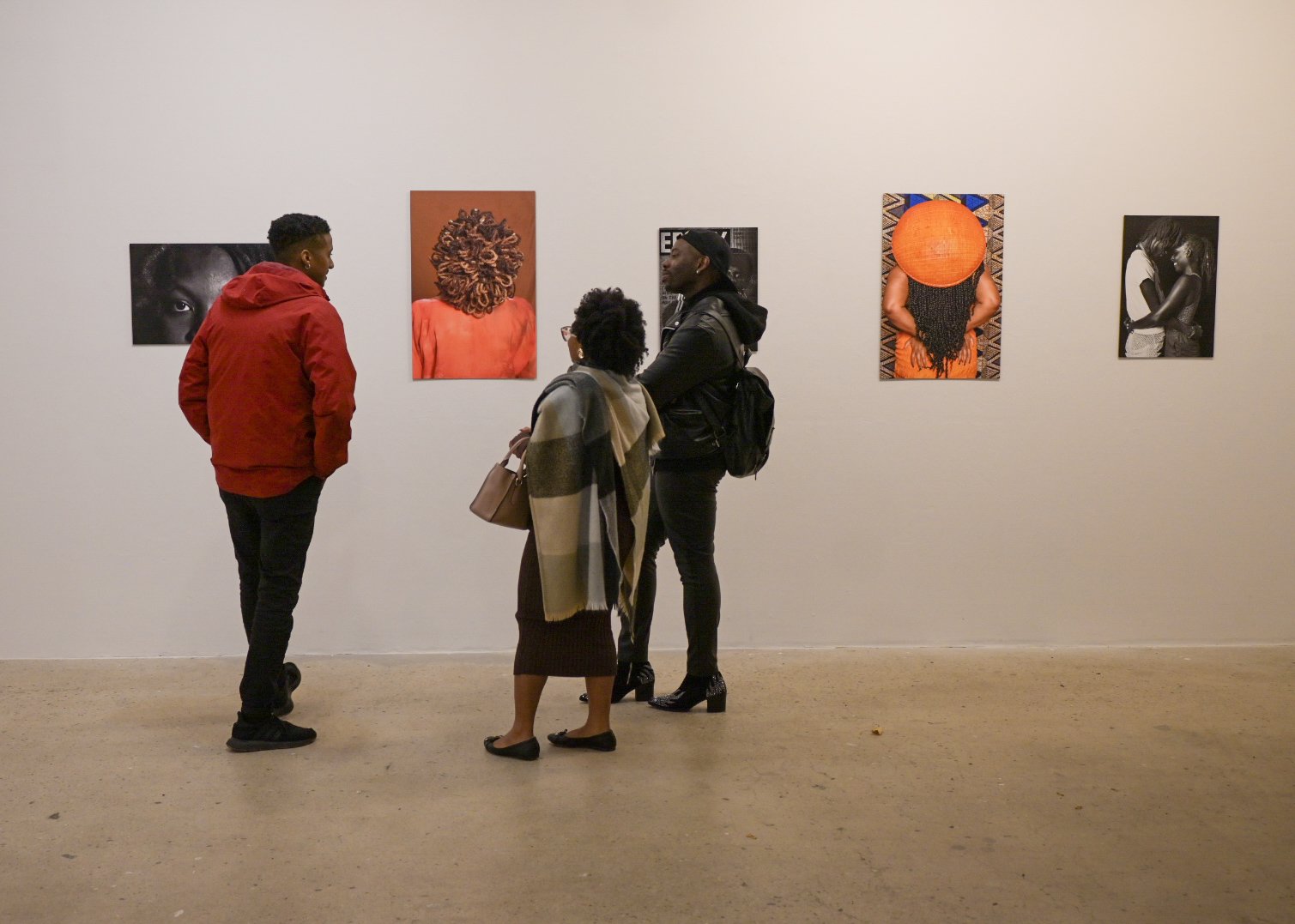
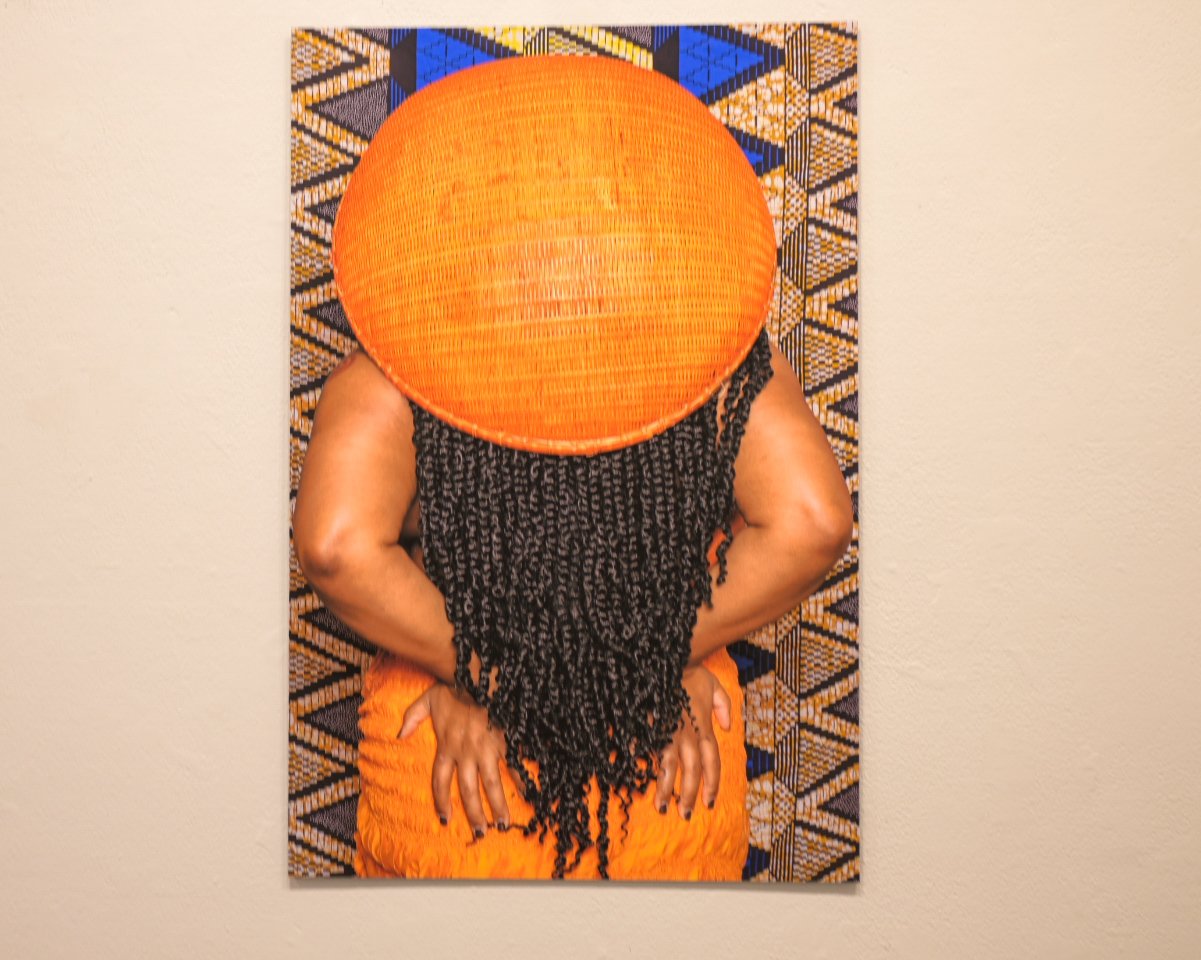
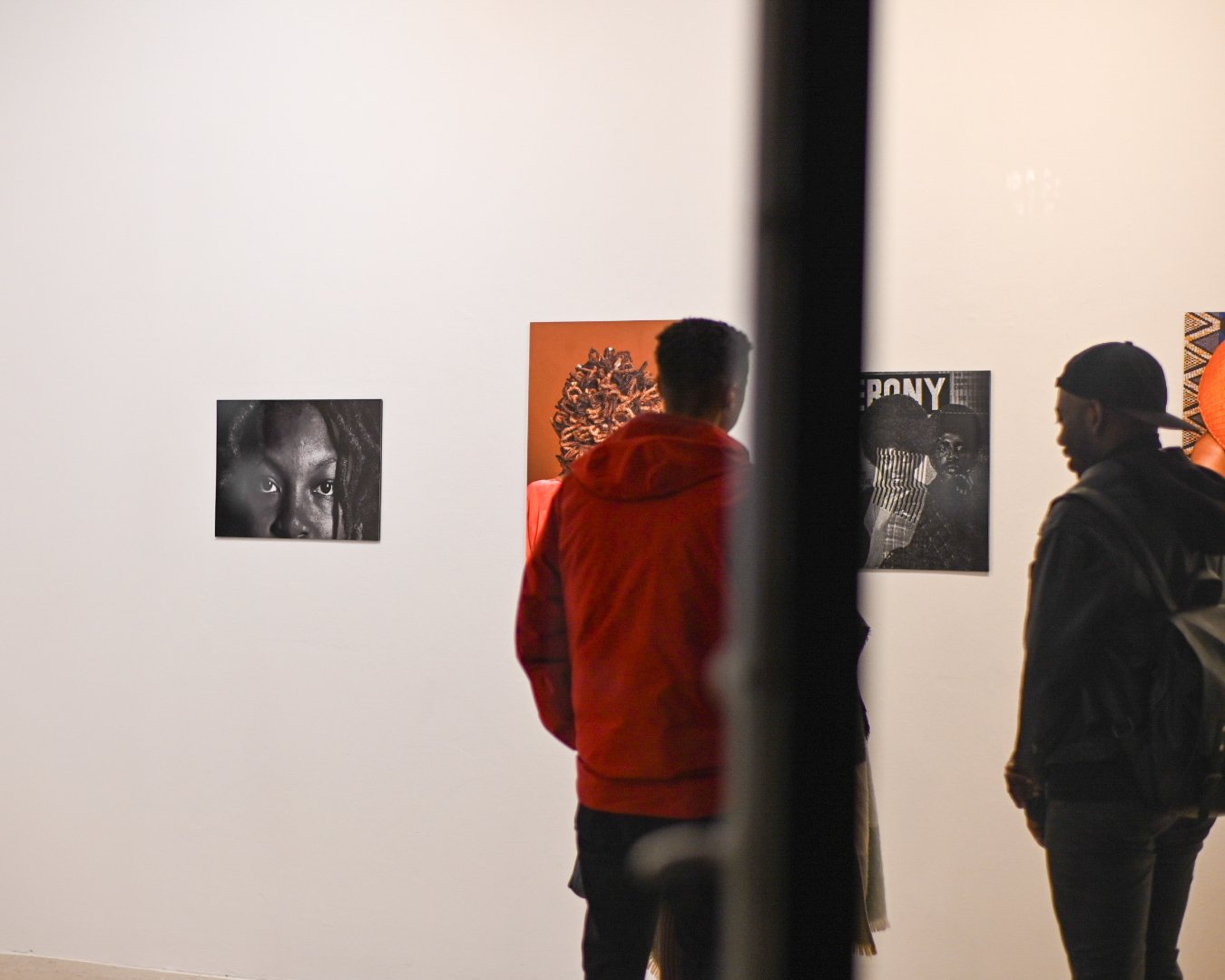
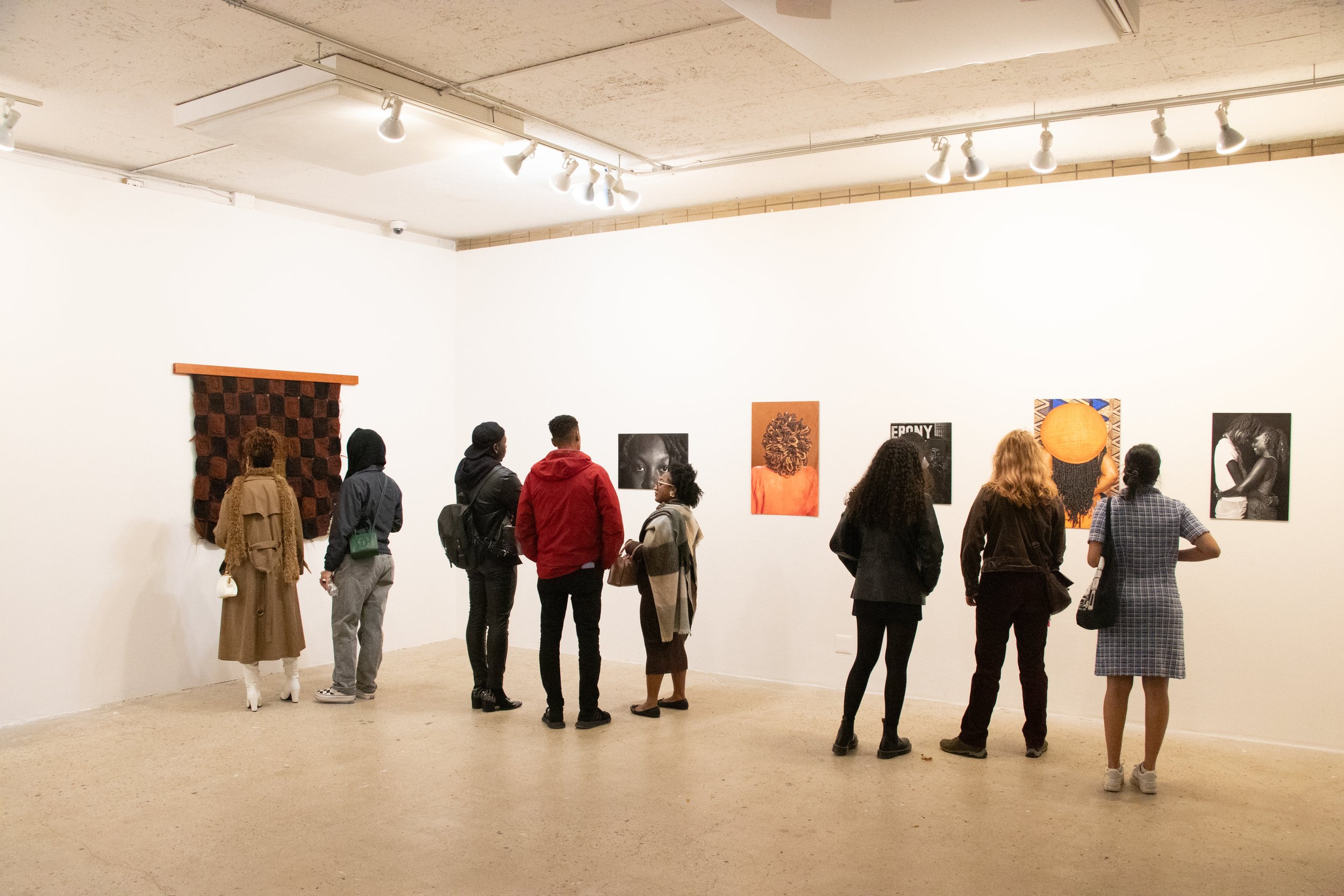
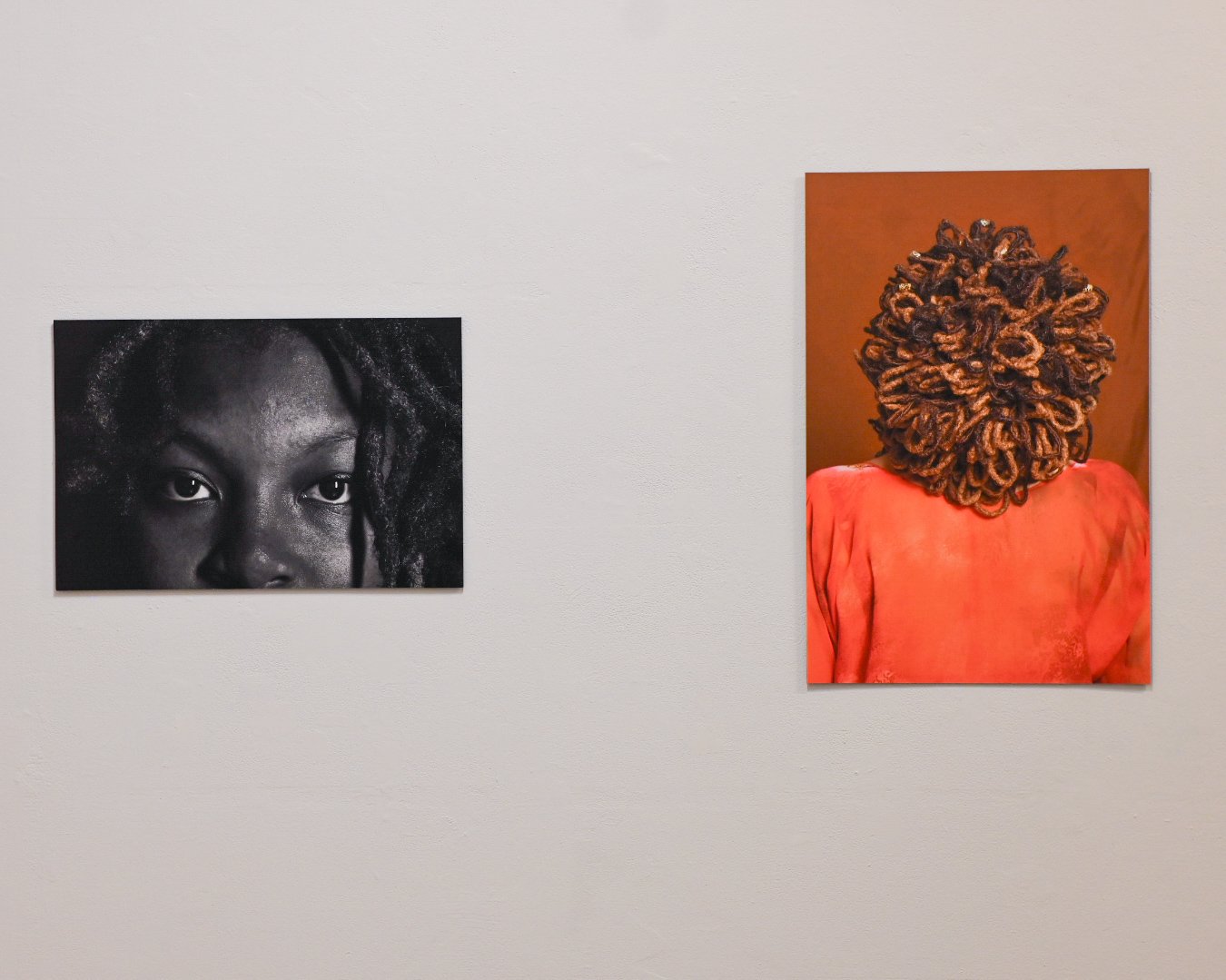
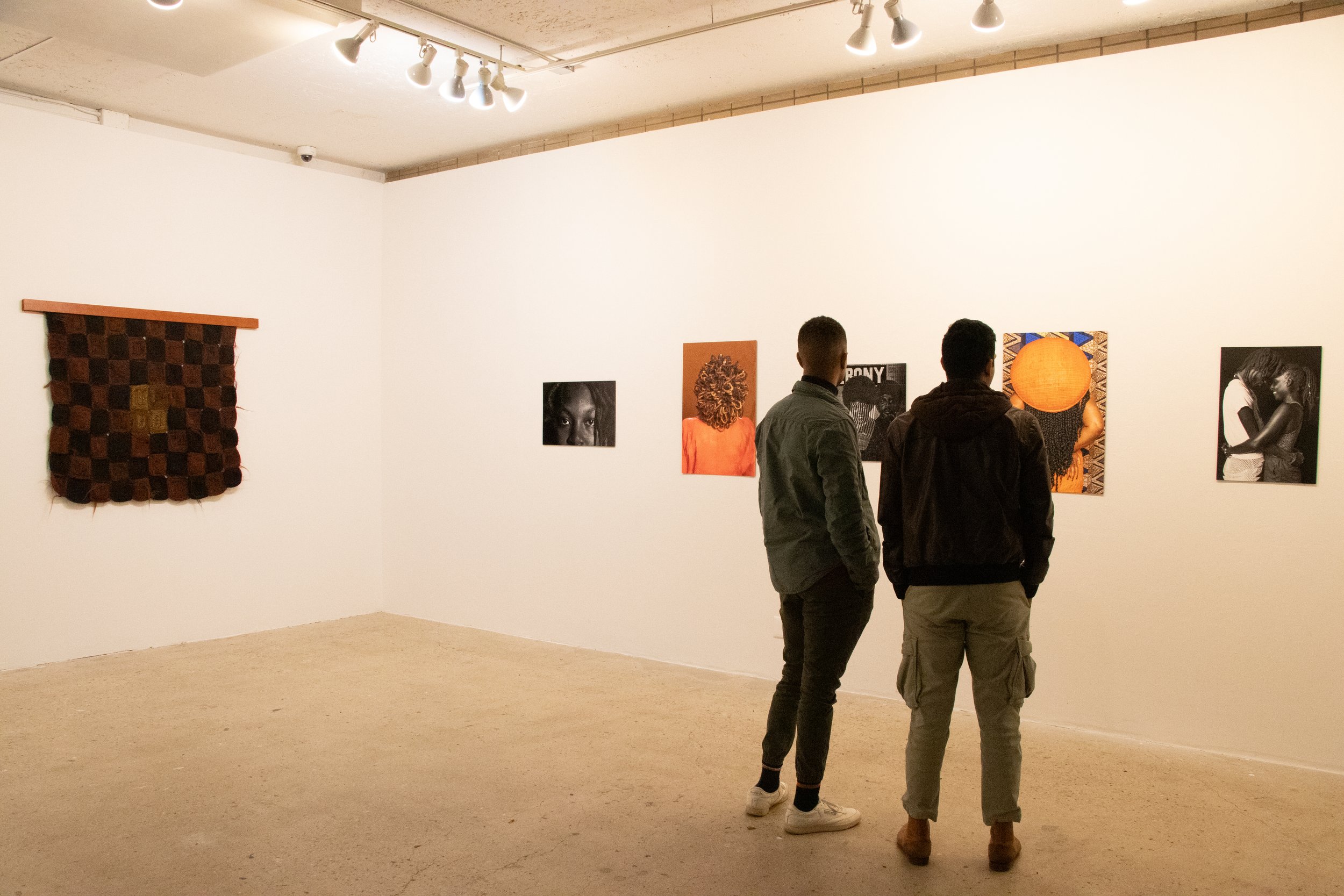

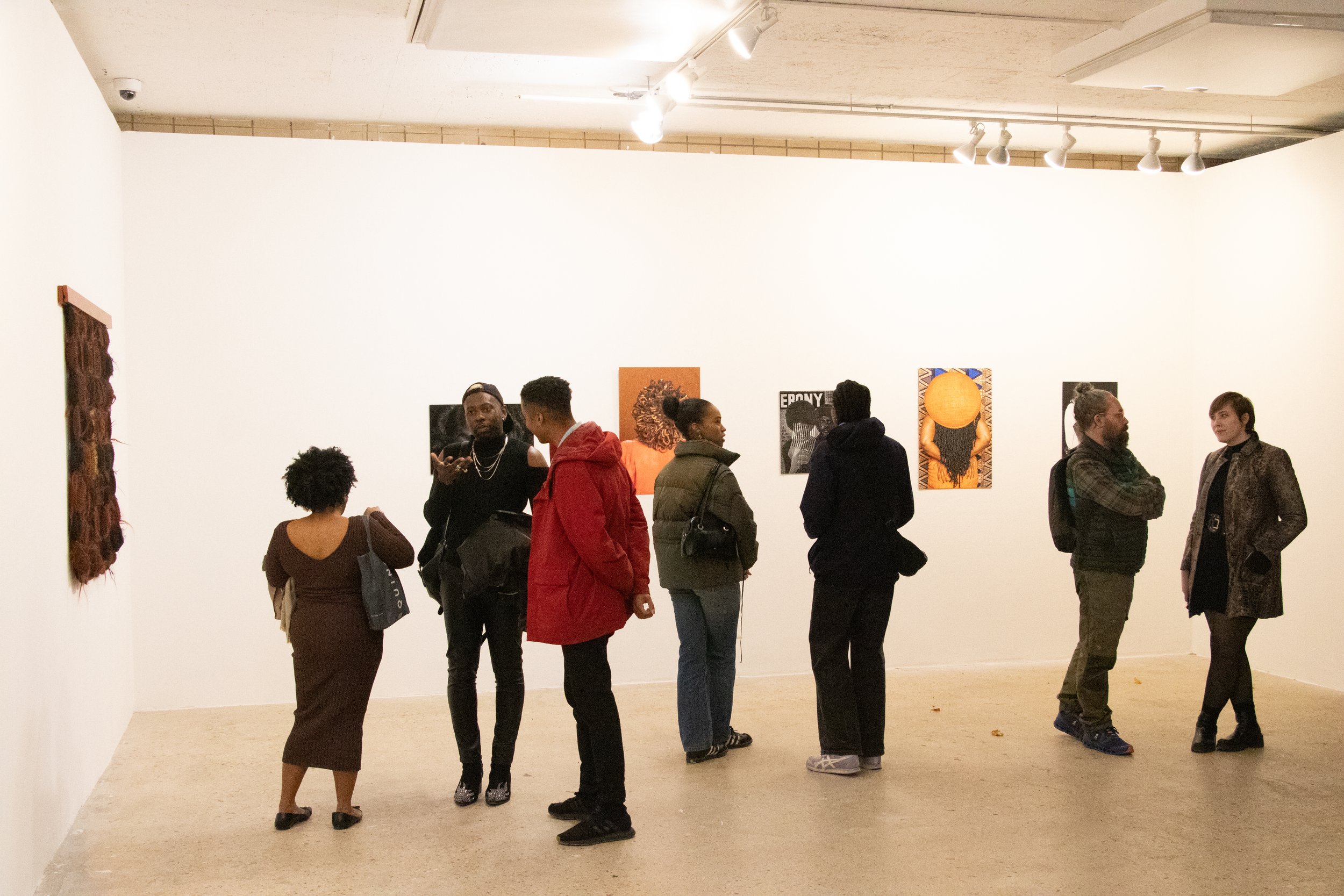
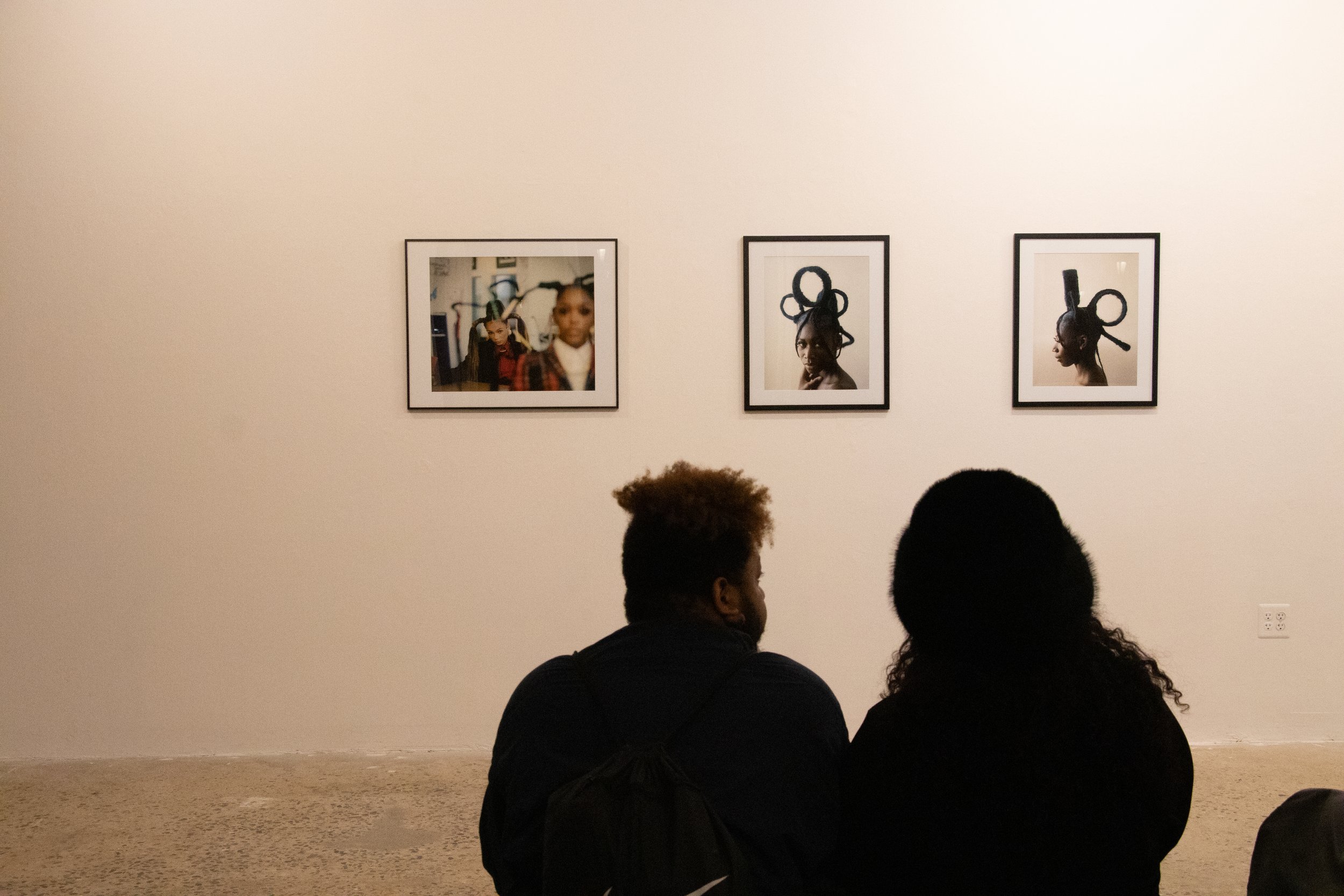

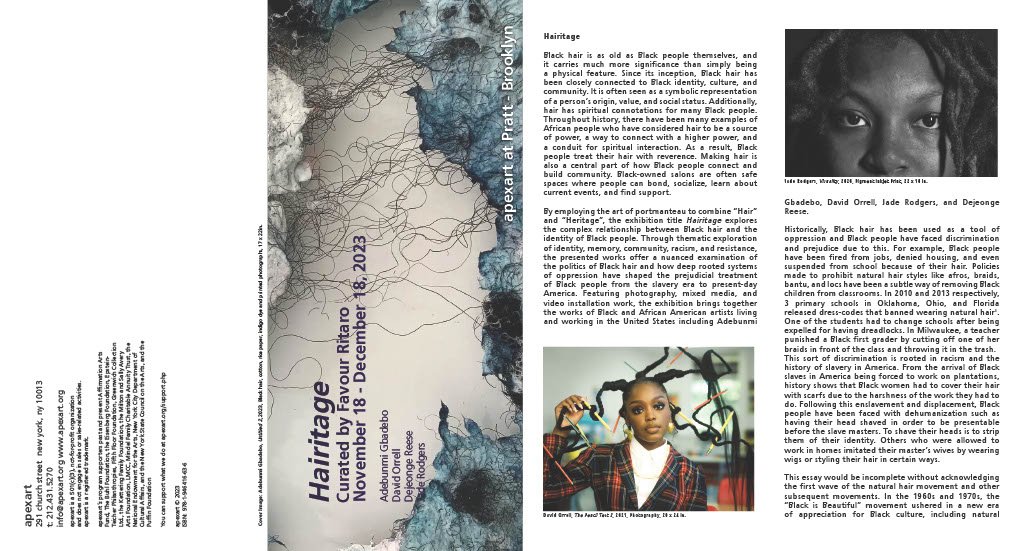
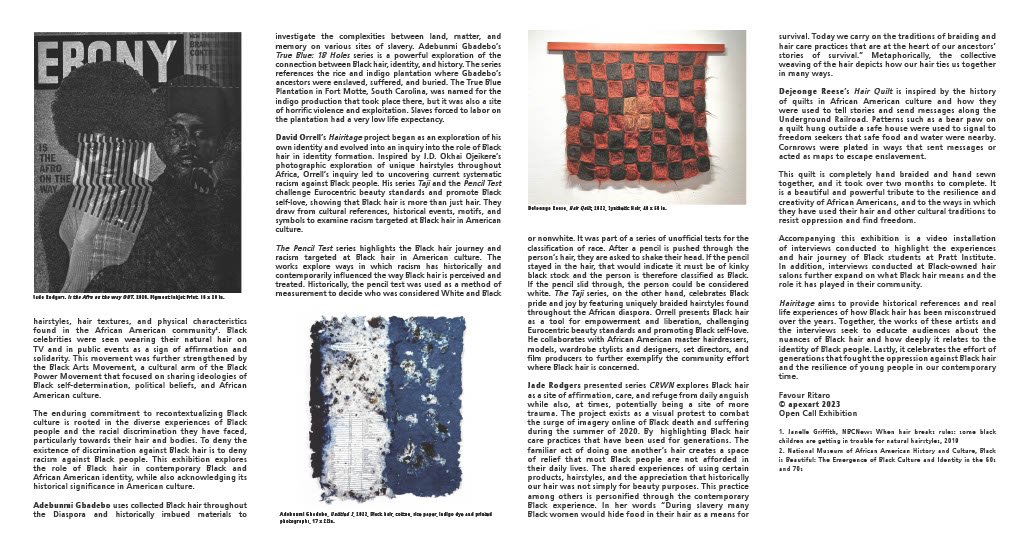
Black Bodied Love
Pratt Photo Gallery, Brooklyn, NY
Have you ever fallen in love with a craft, and found yourself rudely awakened by the ringing sounds of violence, racism, and misrepresentation? I found and used photography to express myself creatively, it was the sound of my voice when I felt I could not speak. In my plight to be understood, I was further alarmed by the history of photography. The records show that photography’s proximity to violence is relative to colonialist ideologies. Nonetheless, I am kin to many within the Black Diaspora. I feel that we are connected through our traumas and our triumphs. We may not share a body, but our shared experiences make this known. I am visible while simultaneously invisible.
In order to reclaim power in representational matters, the photographer, and the sitters’ relationship must be further examined. Through “Black Bodied Love”, autonomy is given to the sitter as a reclamation of the body. Working with each individual and discussing personal attributes of self in which they feel the most confident. The Black body in particular has been perceived in very limited views throughout photographic history. The othering of the Black experience has created a space for Black photographers such as myself to challenge preconceived ideas. Relinquishing control to the sitter allows them space to share how they would like to be represented. Historically the camera has been used to justify the colonialist ideas of white superiority. This work considers the thoughts and experiences of the individual. Before the session begins the participant and I have a focused conversation about representation as it pertains to them. As well as their relationship to the camera, from there they decide how the session will proceed. In post, the sitter decides which photos are selected for viewing, which is the work you see in front of you. As a photographer, I want to explore ways the portrait can be less complacent when working with people of color. The body is framed at the sitter's discretion and I as well as the viewer will behold and affirm their being.

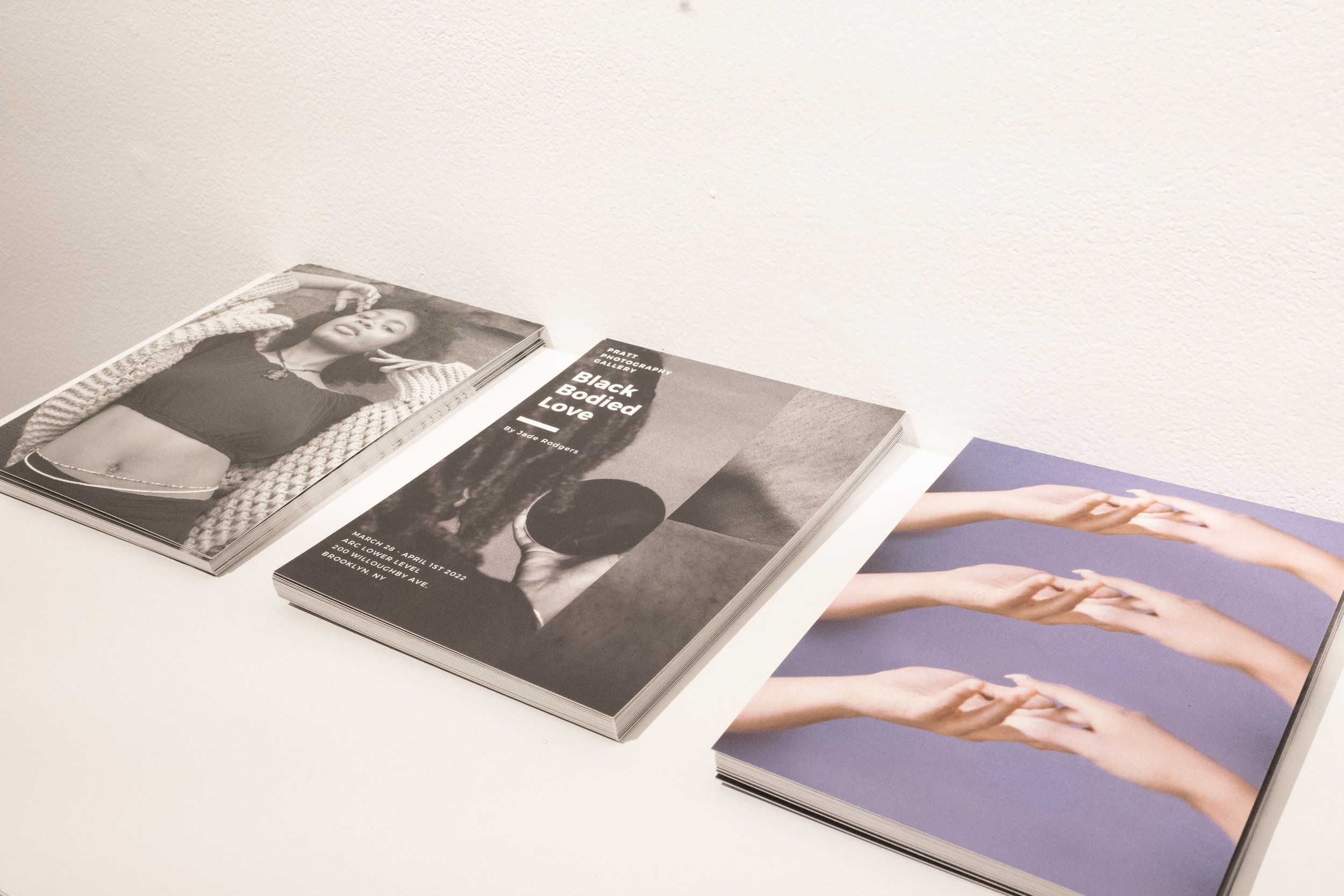
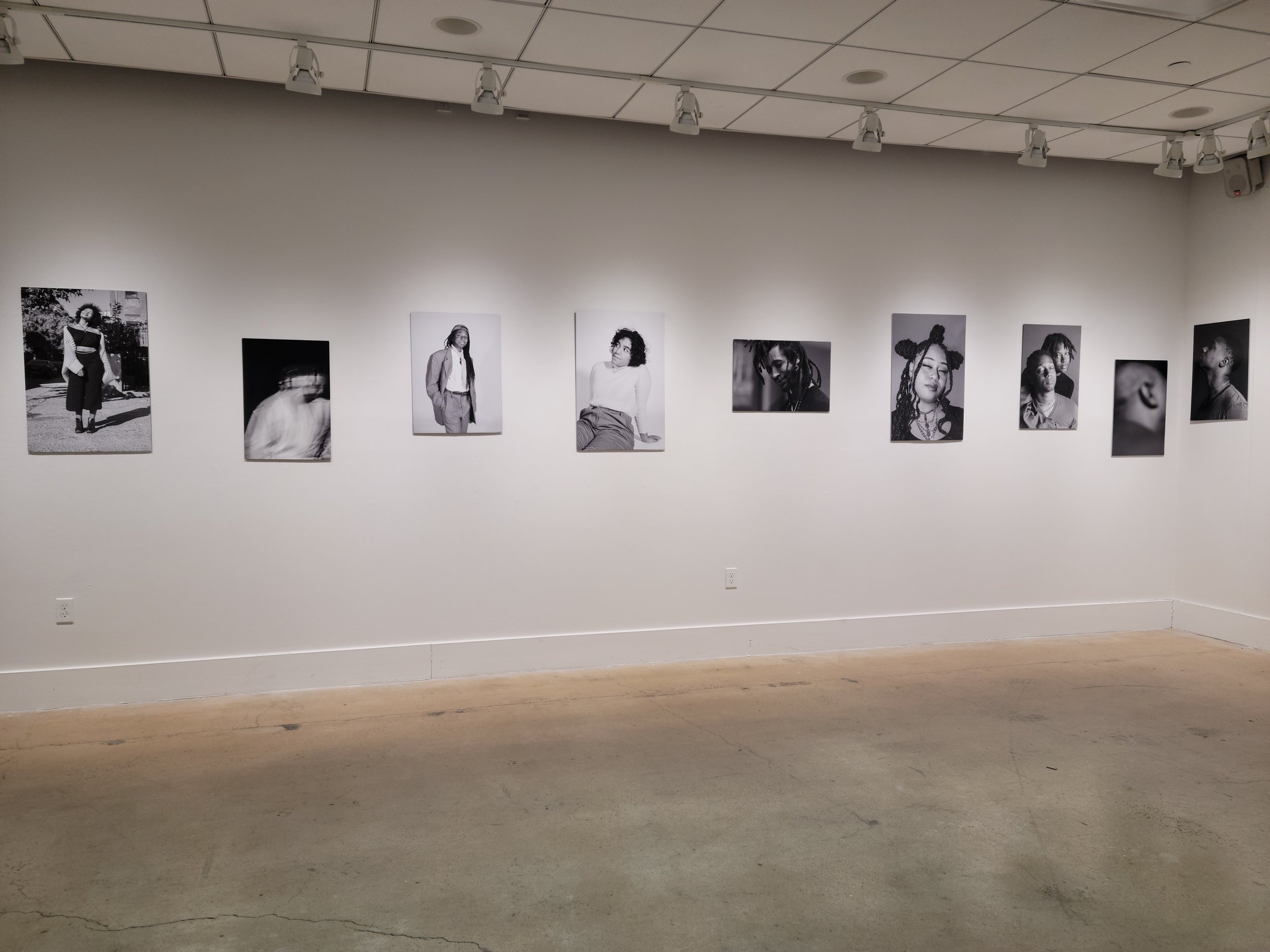
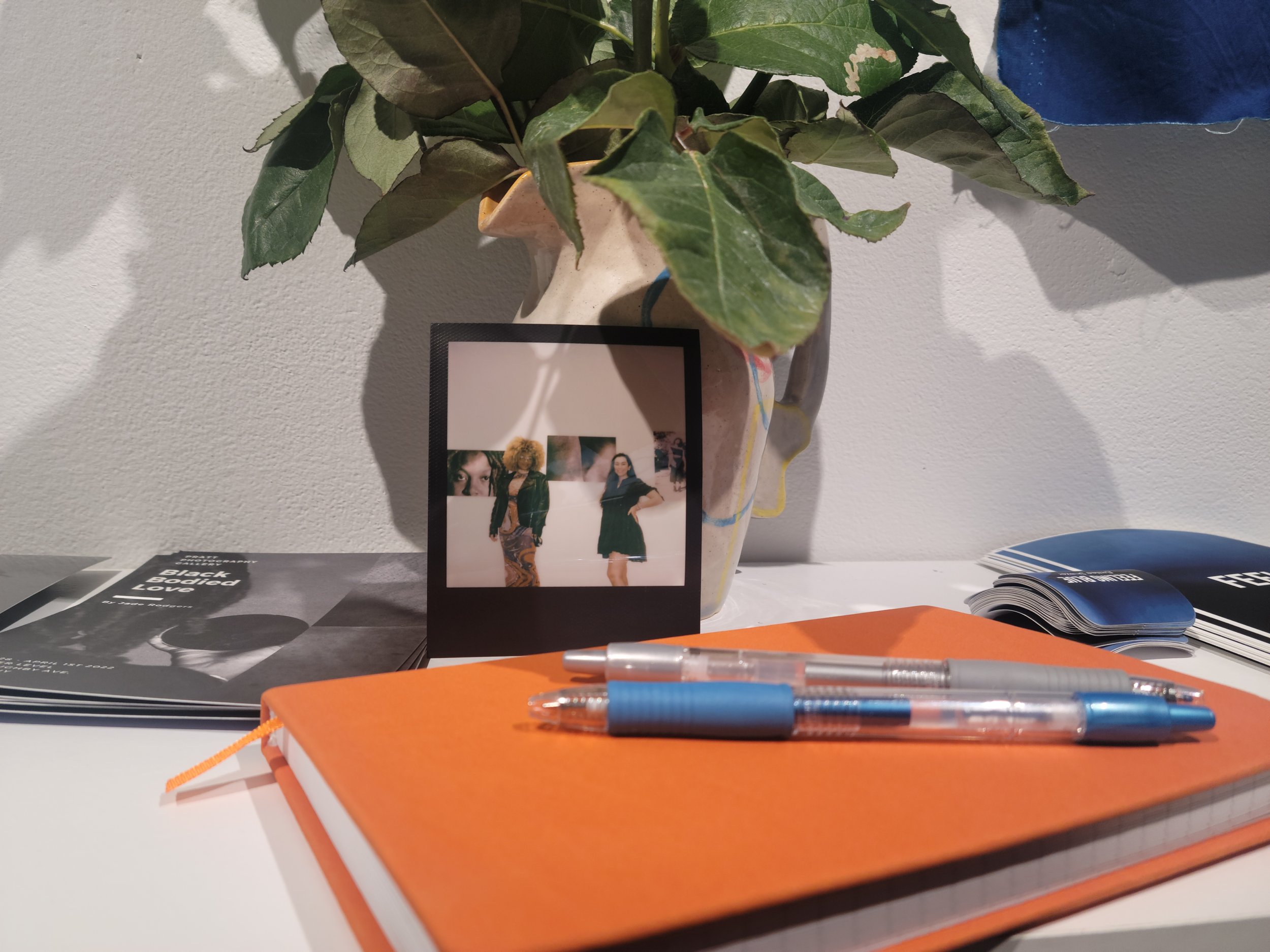
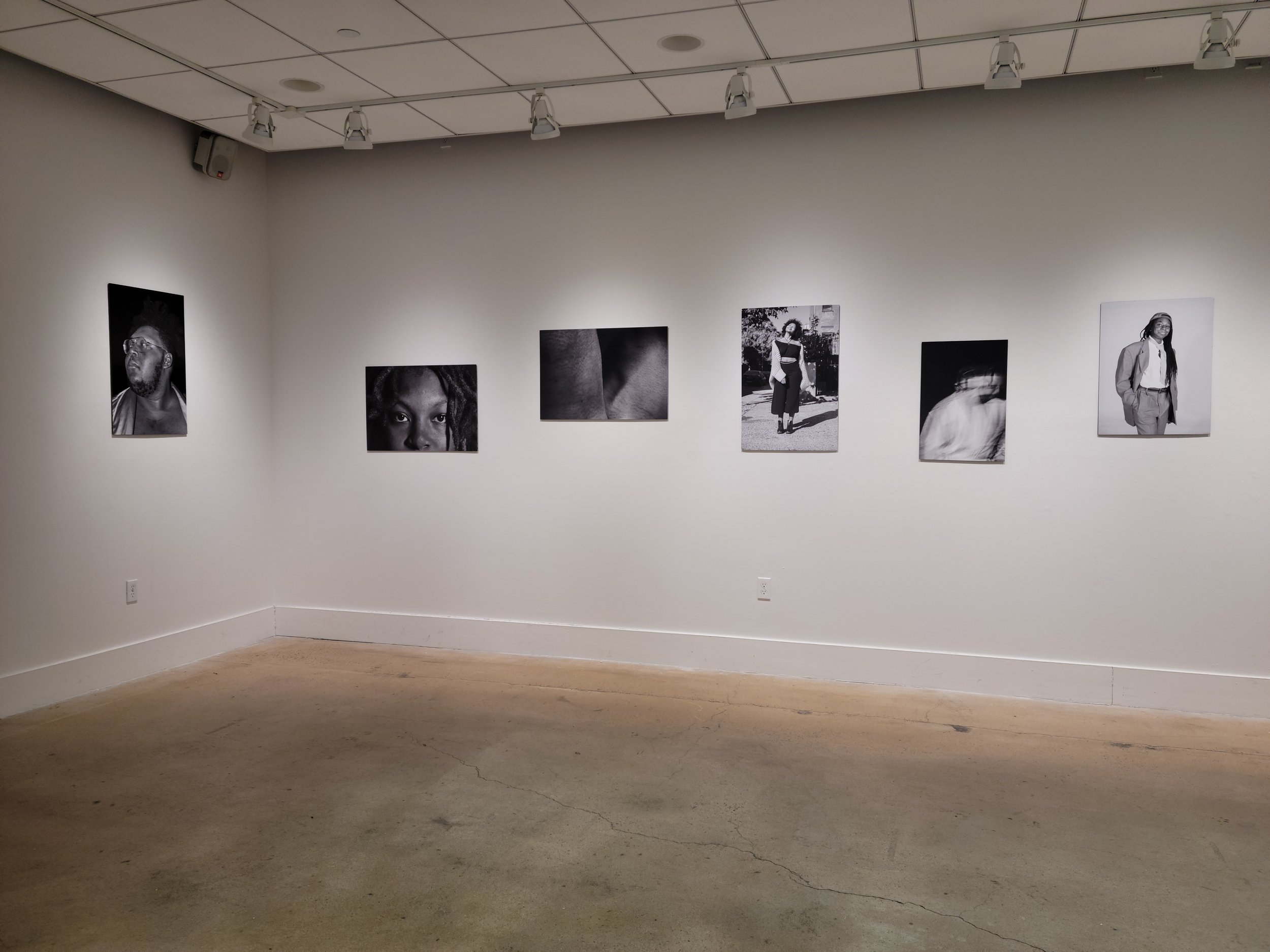
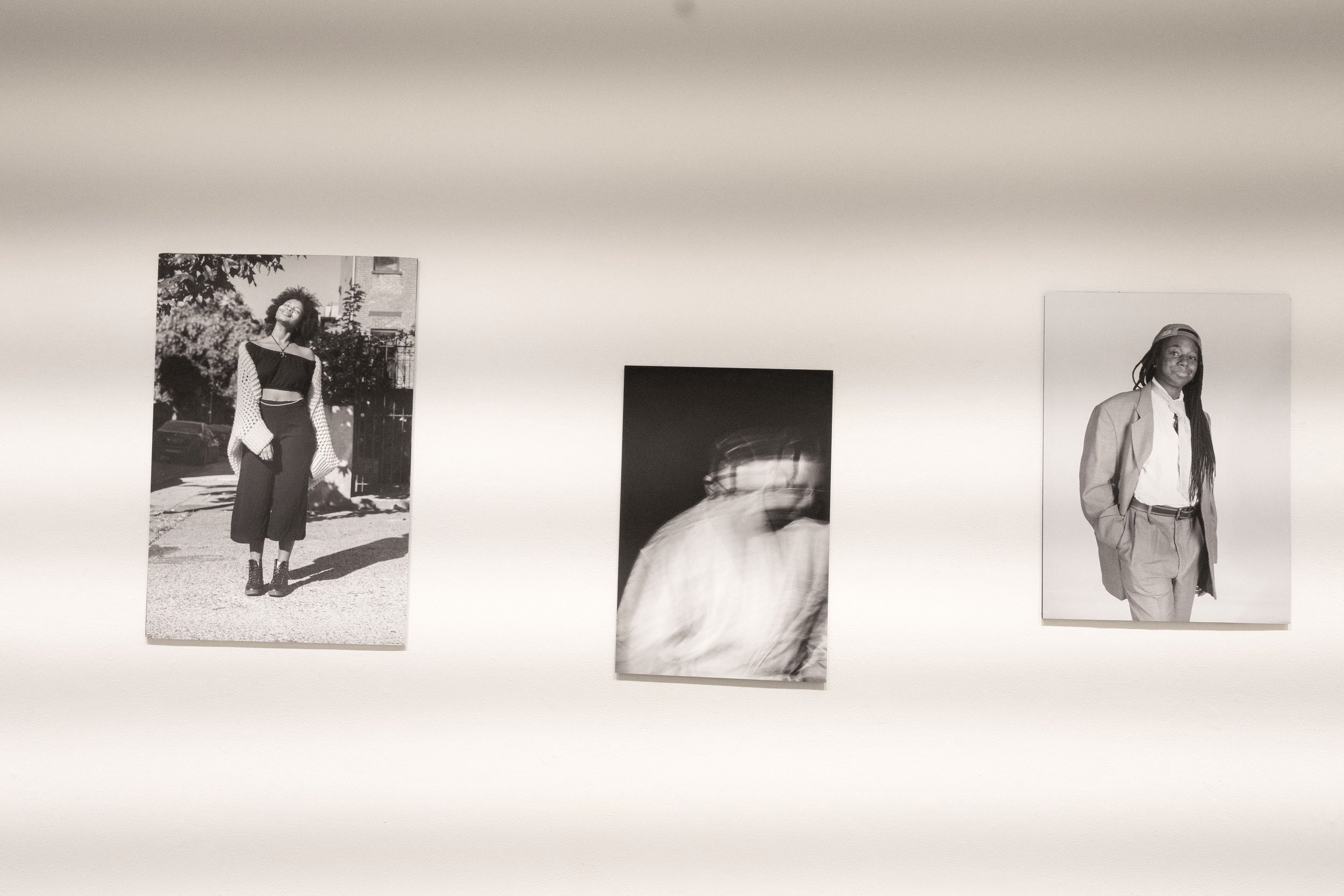
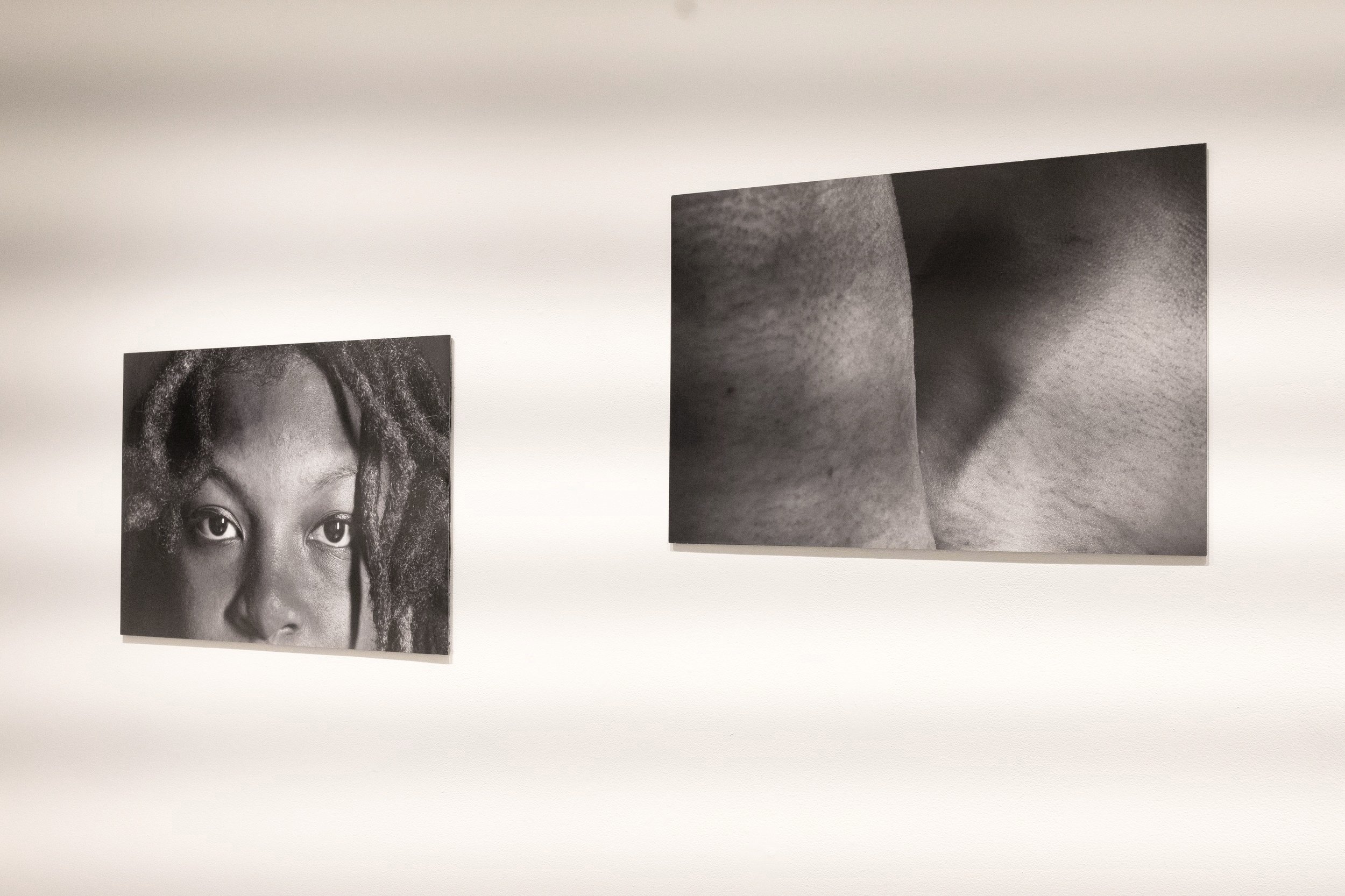
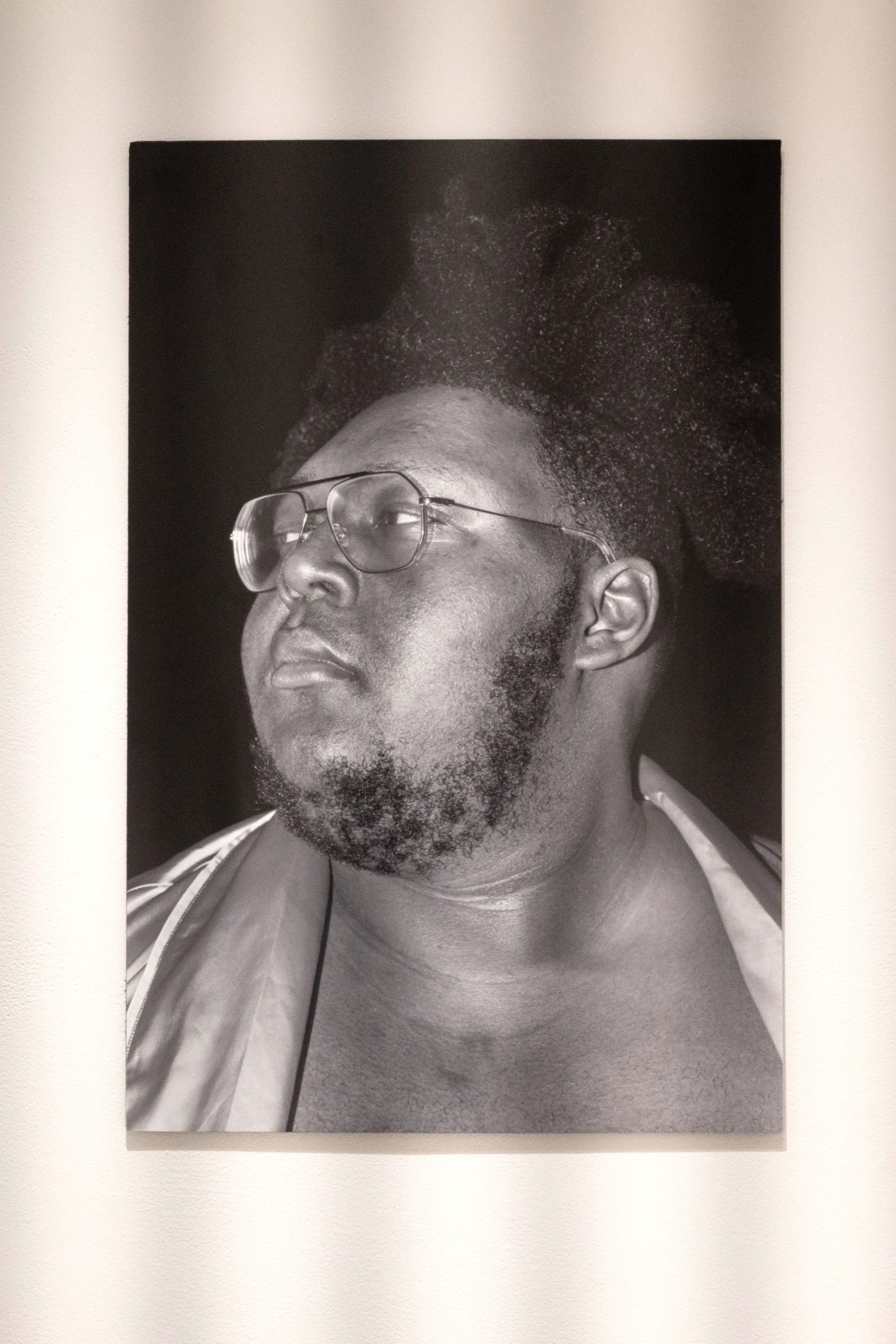
TAKING
Pratt Photography Gallery
Brooklyn, NY September 20th - October 8th, 2021
Taking, combines works from Sydney Ellison’s Here nor There and Jade Rodgers CRWN to facilitate a conversation about the complex relationship between beauty and politics. The title references the power exchange that results from the action of ‘taking photographs’ and the adjective taking that refers to something that is alluring or captivating which relates to the ways both artists use beauty in their work. While beauty has historically been a tool for oppression, which has reinforced beliefs such as racism, sexism, ableism and more, these works use beauty as an entry point to discussing the ways these phenomenon have shaped American society and as an alternative to violent imagery that often dominates these conversations.
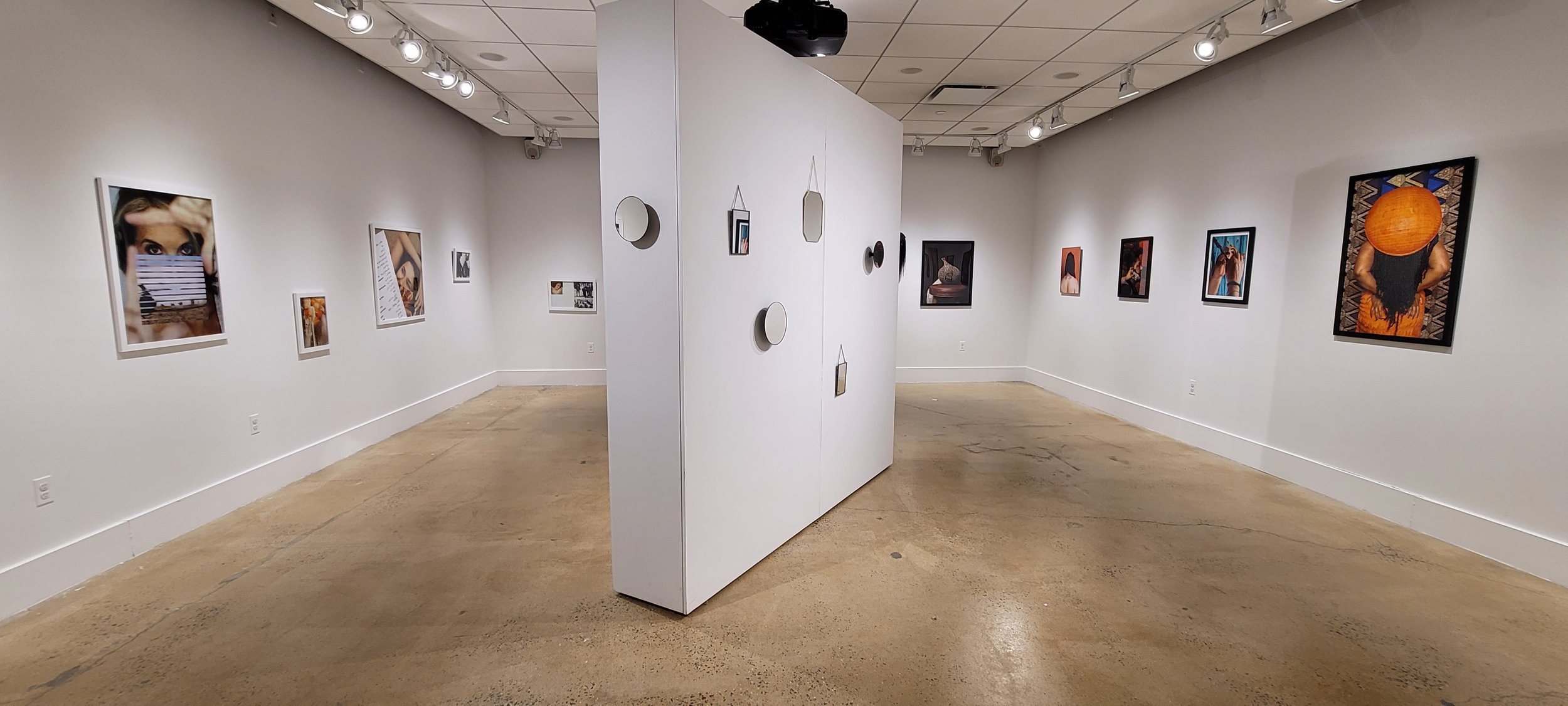
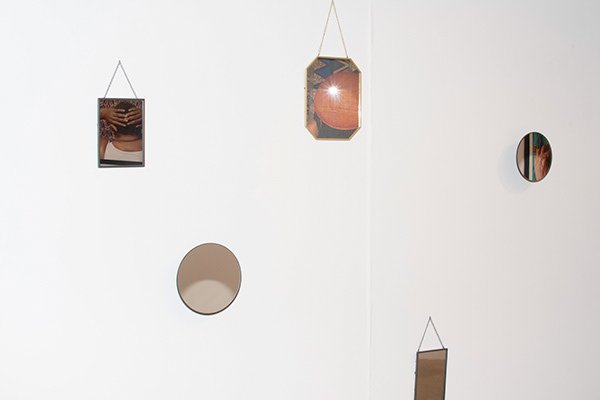
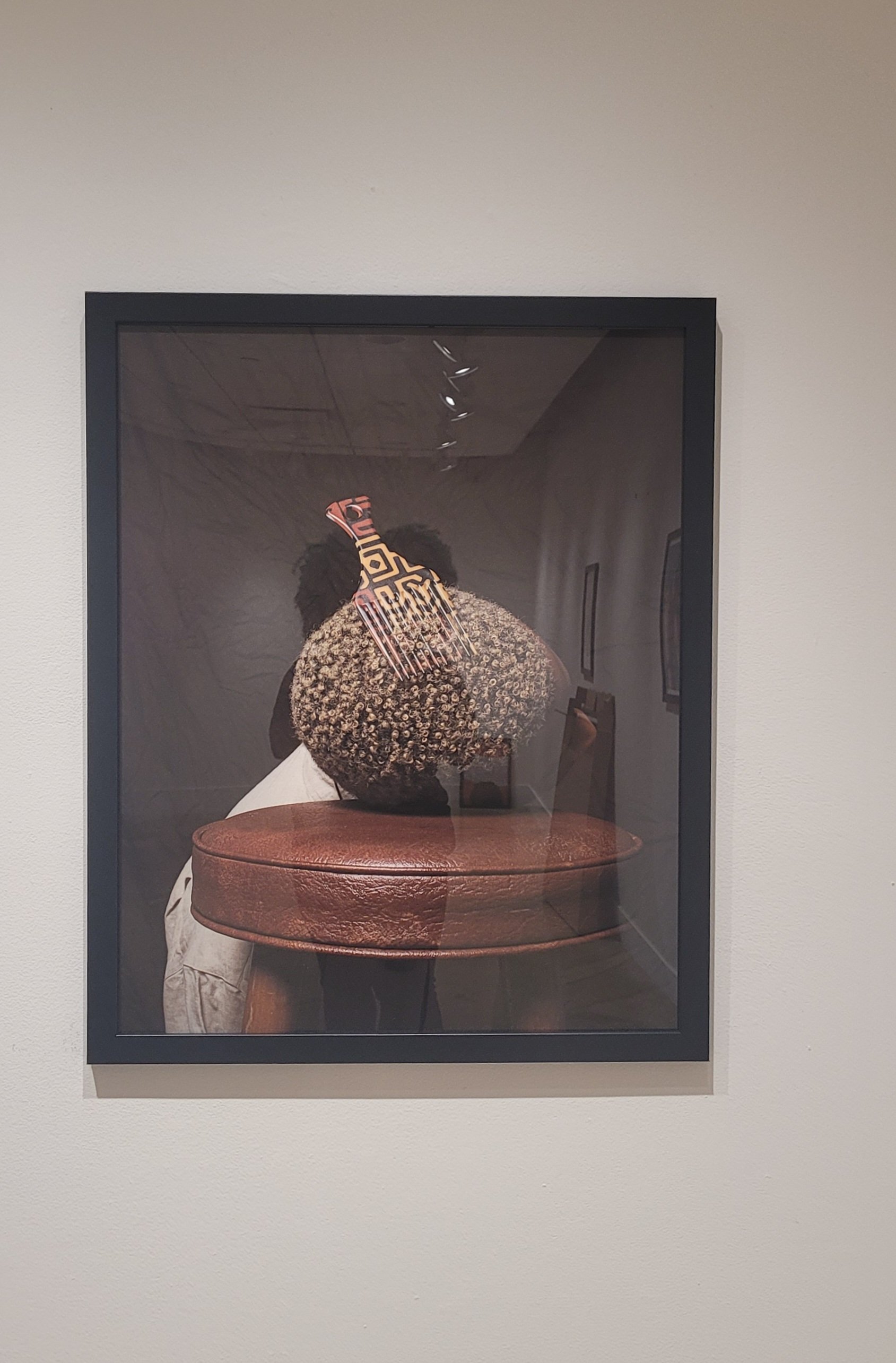
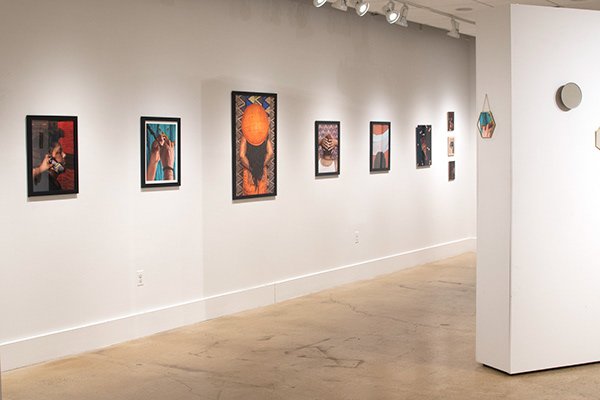
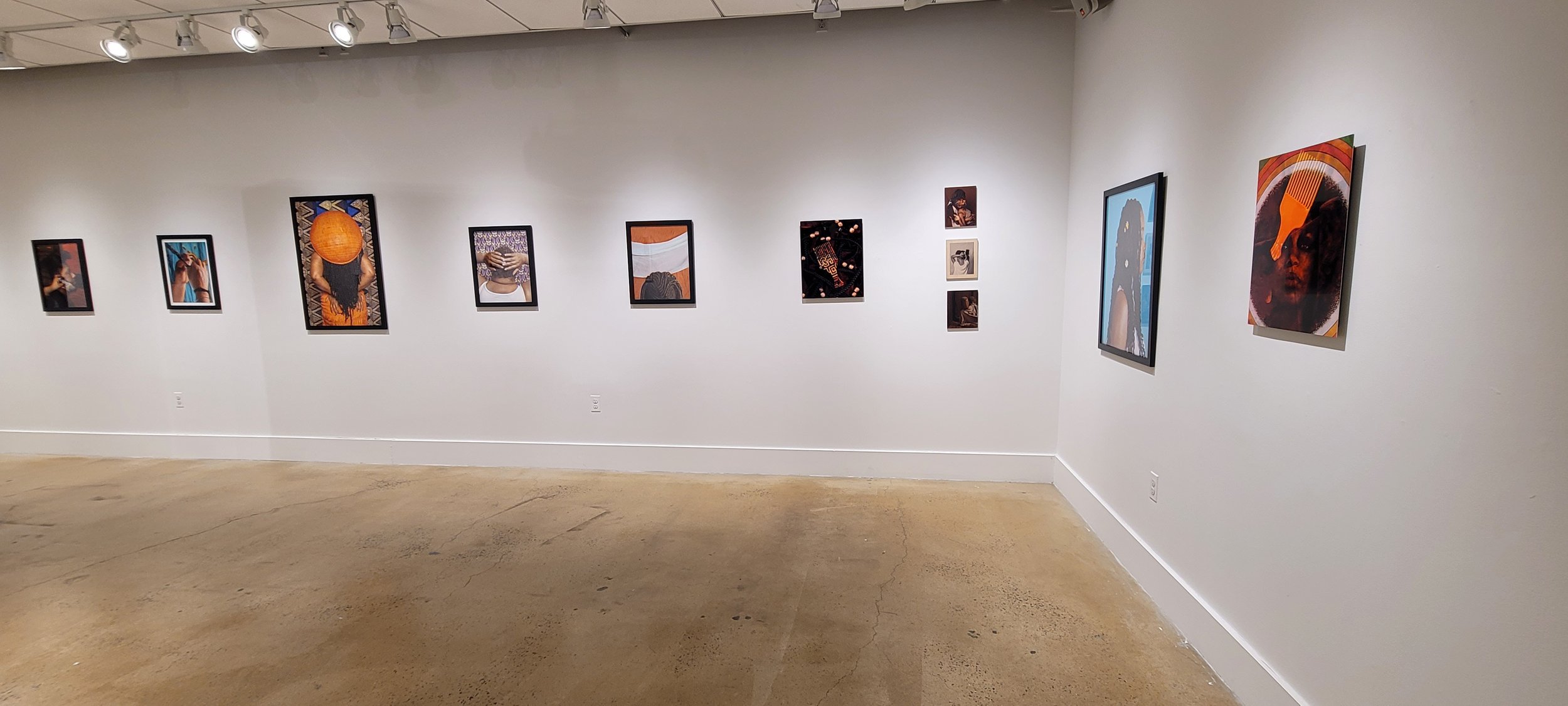
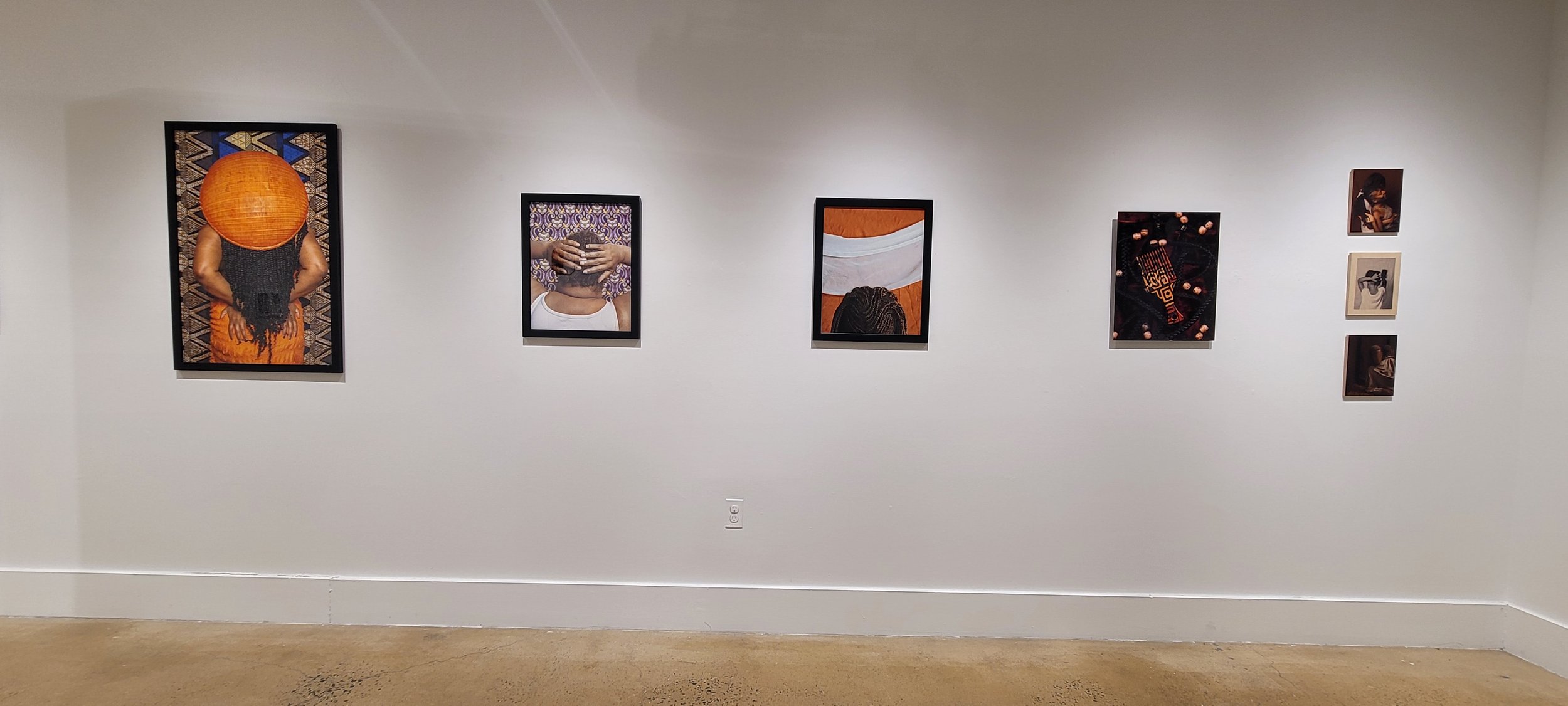
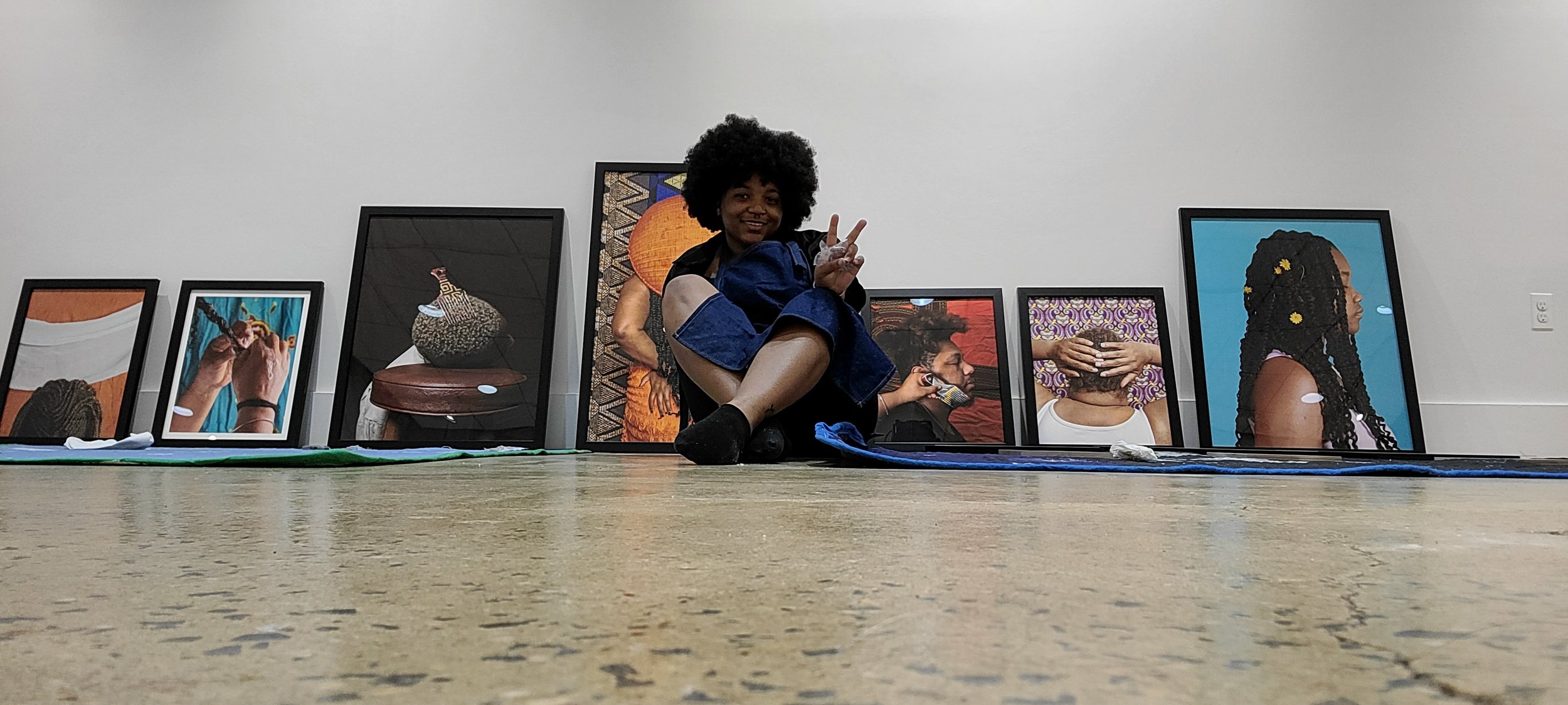
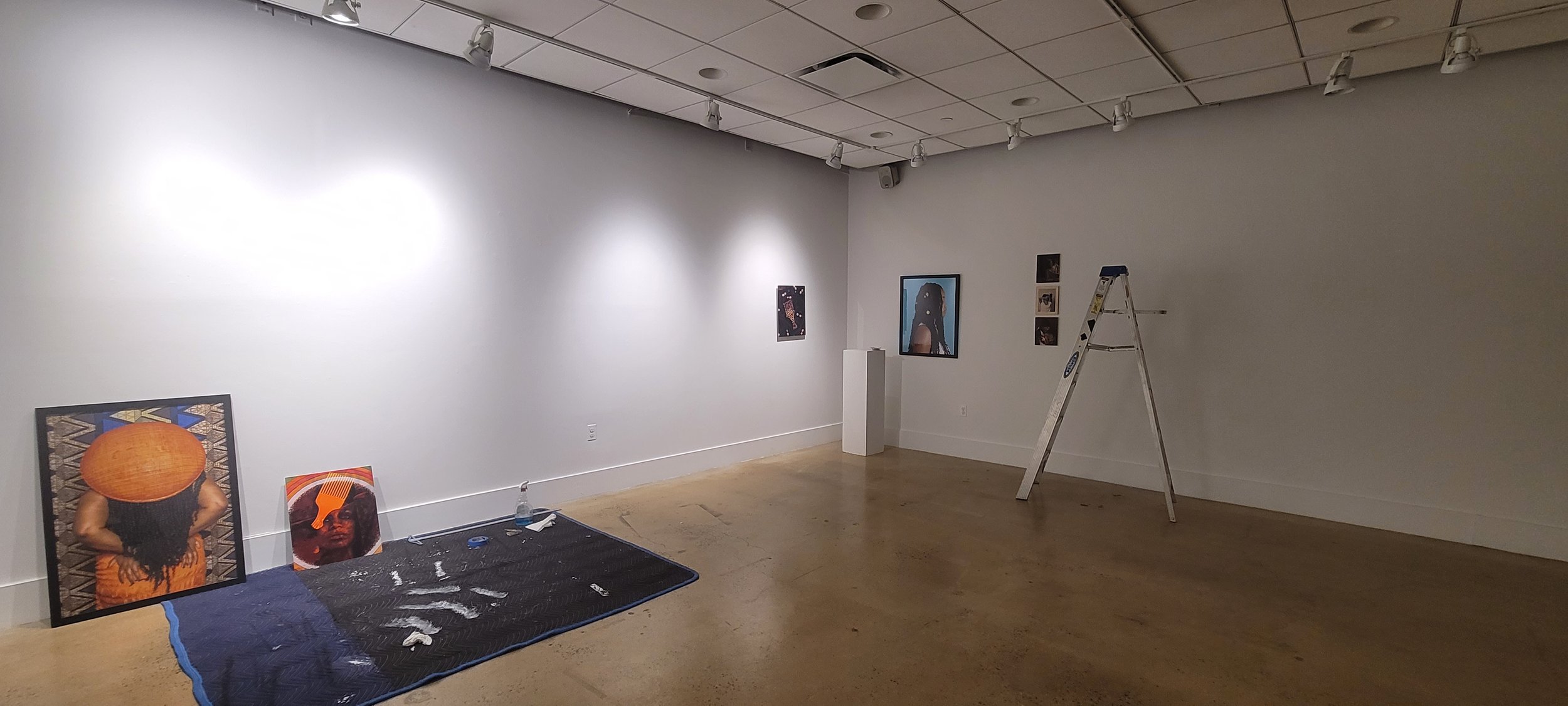
Here nor There uses collected imagery alongside original photographs to articulate the artist’s complex relationship with heritage and ethnicity as it relates to growing up as an Arab-American in a military family post 9-11. The pieces selected for this exhibition specifically use images from cosmetics advertisements to introduce concepts of fetishization, passivity, and spectacle while connecting back to European beauty standards that have been spread through colonialism and continue to be enforced through contemporary imperialism.
CRWN explores Black hair as a site of affirmation, care, and refuge from daily traumas while also at times potentially being a site of more trauma. The project exists as a visual protest to combat the surge of imagery online of Black death and suffering during the summer of 2020. In order to shift the narrative onto radical Black Joy as resistance, CRWN highlights Black hair care practices that have been used for generations. Collectively these images show the ways in which hair connects the Black diaspora generationally. The familiar act of doing one another's hair creates a space of relief which most Black people are not afforded in their daily lives. These shared experiences are a testament to the fact that historically our hair was not simply for beauty purposes. Today we carry on the traditions of braiding and hair care practices that are at the heart of our ancestors' stories of survival. This is personified through the contemporary Black experience, recognizing that the Black body more than any other has been policed and politicized at every turn.
Online Features
Don’t Smile, Earth Mother / Mother Earth
Der Greif, Blog feature with Michael Hicks
Houston Center of Photography, Togethering
Analog Forever Magazine, Love in all Forms
